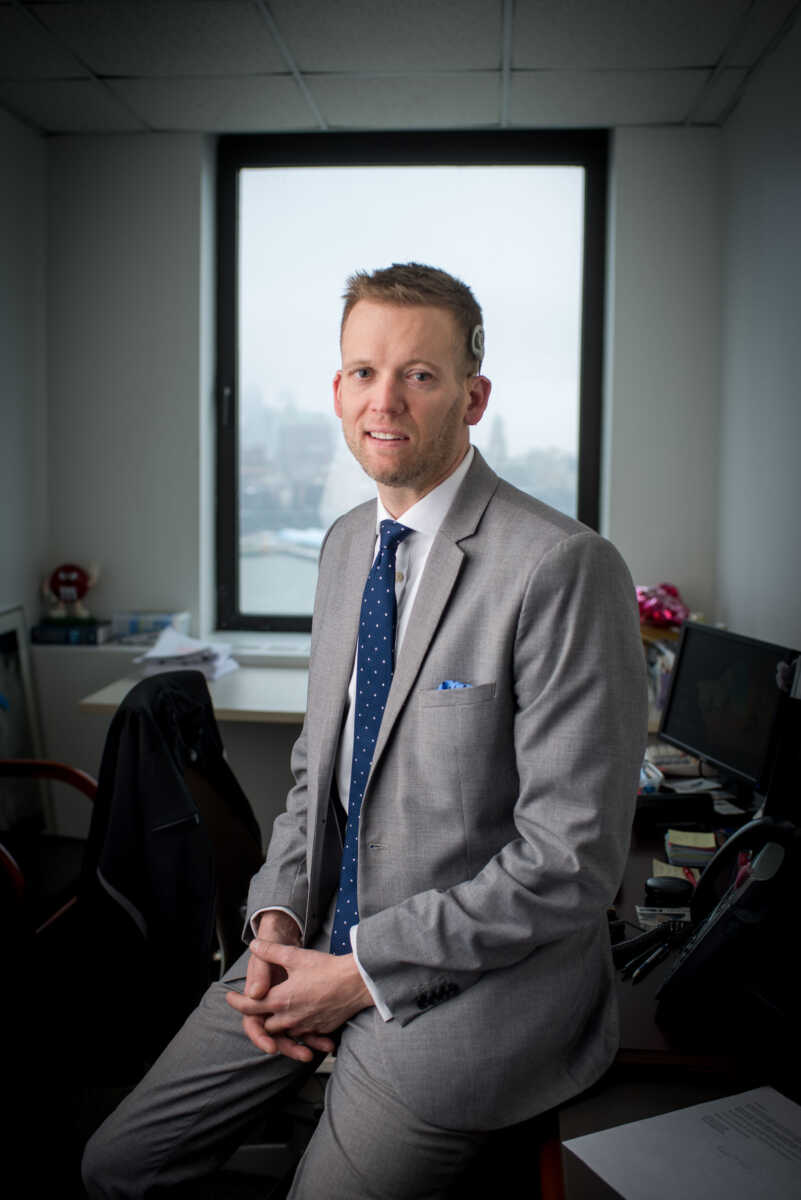 I was diagnosed with NF2-related schwannomatosis as a sophomore in college. My hearing loss was the most immediate and obvious aspect of some very tough years in my 20s as I dealt with the long recovery of multiple brain, spine, and eye surgeries. On the other hand, NF2-related schwannomatosis has impacted how I prioritize my time and value relationships because I have a constant reminder that happiness and good health can change in an instant. I try to take time to really appreciate the moments when my wife, kids, and dog are all sitting on the couch laughing, because I know that represents a lot of effort and good fortune despite the many challenges of dealing with NF.
I was diagnosed with NF2-related schwannomatosis as a sophomore in college. My hearing loss was the most immediate and obvious aspect of some very tough years in my 20s as I dealt with the long recovery of multiple brain, spine, and eye surgeries. On the other hand, NF2-related schwannomatosis has impacted how I prioritize my time and value relationships because I have a constant reminder that happiness and good health can change in an instant. I try to take time to really appreciate the moments when my wife, kids, and dog are all sitting on the couch laughing, because I know that represents a lot of effort and good fortune despite the many challenges of dealing with NF.
Losing my hearing as a salesperson was significant. After a particularly challenging recovery from surgery to remove a large brain tumor, I could still technically do my job, but it was very unsatisfying to continue in a sales role knowing that no matter how hard I tried, I wasn’t doing it as well I as used to. My company was great about moving me to a related position in marketing where I could thrive and bring unique value to our business by supporting the sales teams and clients that I knew from my time in sales, but with communication mostly via email or instant messaging.
I completed my MBA in 2011 after my hearing improved due to a successfully implanted auditory brainstem implant (ABI). I was forced to be a better student than I had been prior to my hearing loss, due to the changes I had to adopt: always come to class prepared, sit in the front row, ask questions and constantly pay attention to read the professor’s lips when he or she was speaking.
Even with hearing loss, my bigger day-to-day struggle is having partial facial paralysis (a result of surgery to remove a brain tumor on my facial nerve) because it impacts me not only physically, but also emotionally. It’s hard to shake the idea of looking different to other people or looking different than how we think of ourselves – ten years of paralysis and I’m still surprised sometimes to see the guy looking back at me in the mirror. What has helped is just maturing and understanding that everyone, no matter how they look, at some point deals with not feeling like they look the way they want to look. Having facial paralysis didn’t make those feelings unique to only me, and that has helped me to understand and remember that everyone is dealing with their own issues, it just may not be something others see at first glance.
There’s no doubt that NF can make life a lot harder in any number of ways, but focusing on that doesn’t help me with those challenges. Instead, I’ve found it helps me to focus on the things that I can still do rather than the things that I can’t. This isn’t always easy but, like with most things, it does get easier with practice.
Matt Hay, 40 years old, lives with NF2-related schwannomatosis. He currently resides in Westfield, Indiana with his wife and children, where he works as a Consumer Insights Analyst. He is also a member of the Board of Directors of the Children’s Tumor Foundation.



